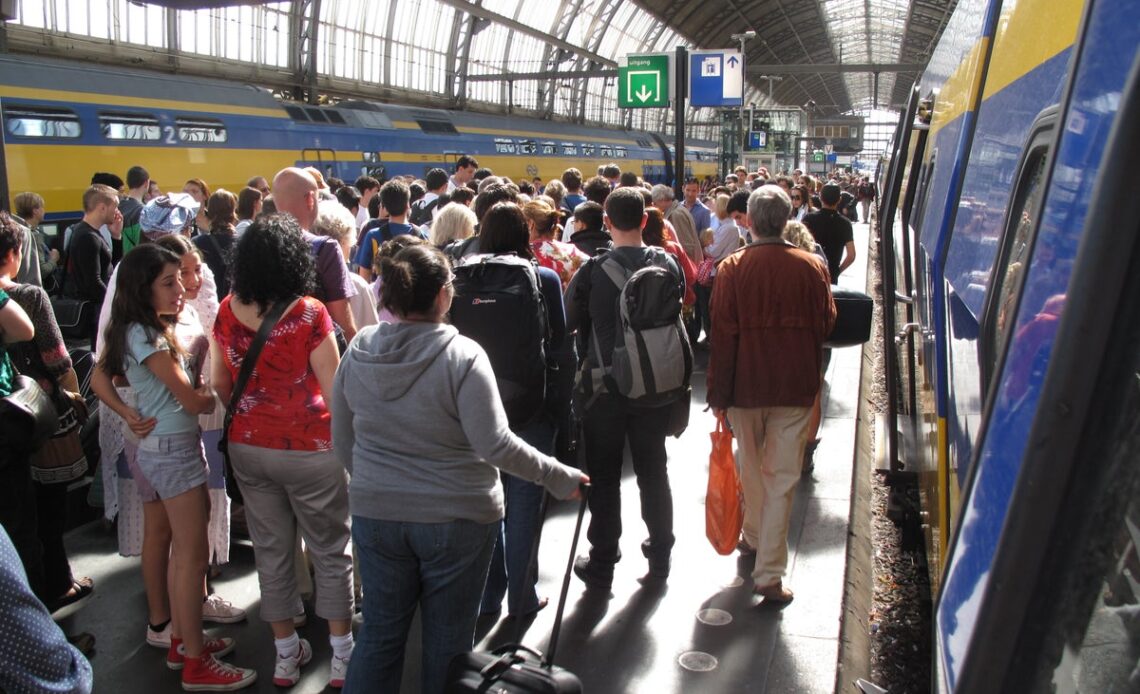On the railways of Britain the warring factions in the tangle of industrial disputes are still about as far apart as Penzance and Thurso.
So after the first weekend for weeks with no rail strikes, I fear more walkouts are on the way. But the UK is far from a monopoly provider of toxic industrial relations.
“After thorough analysis we have decided that there are no viable option to operate a timetable in a responsible way” – that was the announcement from Nederlandse Spoorwegen (NS, or Dutch Railways) on Tuesday 30 August.
The rail unions – FNV Spoor, VVMC and CNV – have been calling strikes in different parts of the Netherlands all week. Tuesday’s affected the heart of the network, causing a nationwide shutdown (apart from a shuttle service between Schiphol airport and Amsterdam Central).
“We are extremely sorry that passengers are experiencing so much inconvenience,” NS said.
As in the UK, the dispute is fundamentally about pay at a time of high inflation and reduced rail revenue. And it comes at a time when the train operator is short of qualified staff in key roles.
“In spite of all the efforts to solve the shortage of colleagues, the shortage remains considerable.”
So when the strikes are over, normal service will not resume. Instead, Dutch Railways is cutting its schedules drastically.
“In the fall and for the year 2023, due to the expected staff shortage, we are adjusting the timetable to make it more executable.
“Obviously, we would prefer not to do this, but the situation leaves us no alternative.“
From 5 September, routes with six trains an hour will reduce to four. At weekends and in the evenings, trains will run every half hour, instead of every 15 minutes. Annoying for Dutch travellers and international visitors who will have to wait for longer and put up with more crowded trains.
Yet one of Europe’s top rail experts compares the NS move favourably with the British equivalent. At present Avanti West Coast lurching as best it can from one emergency timetable to the next due to chronic staff shortage, with no certainty yet which trains will run on (for example) 10 and 11 September.
Nicky Gardner, co-author of Europe by Rail, tells me Dutch Railways has “a widespread issue of staff shortages due to illness” – which sounds similar to Avanti’s ailment.
Accordingly, she says: “Shifting to a less intense timetable, one where the frequency on the densest routes is thinned out, makes perfect sense. The news story here, one…
Click Here to Read the Full Original Article at The Independent Travel…
